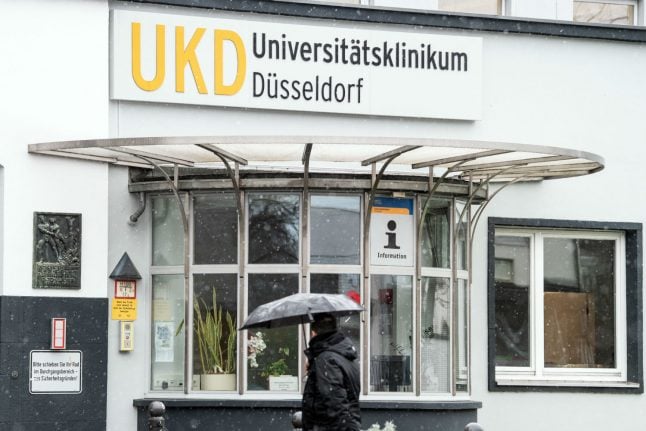The first coronavirus case in North Rhine-Westphalia (NRW) was that of a 47-year-old man from Heinsberg. His 46-year-old wife, a kindergarten teacher, tested positive for the virus shortly afterwards.
READ ALSO: Five new coronavirus cases confirmed in western Germany
On Wednesday evening, Heinsberg authorities reported that three other people in contact with the couple had been infected, and are now in quarantine at home. A sixth case was confirmed on Thursday morning.
A spokesperson for the NRW Health Ministry said on Thursday morning that it was now crucial to find all contacts of the infected people, as well as the “Patient Zero”, or person who infected the 47-year-old man.
Heinsberg is situated in far-west Germany, close to the Dutch border. Map: Google Maps
According to District Administrator Stephan Pusch (CDU), the infected couple had an “endless amount of contact” with other people in the past 10 to 14 days.
Authorities called on approximately 300 visitors of a carnival event in nearby Gangelt which the man visited on February 15th to report to authorities.
All carnival-goers and their families must go into domestic quarantine for 14 days, the North Rhine-Westphalia Health Ministry announced early Thursday.
In Mönchengladbach, the Maria Hilf Hospital is also searching for people who have had contact with a doctor found to be infected with the virus.
According to the authorities, all those infected so far in the western state have been in contact with the couple, who are currently being treated at the University Hospital in Düsseldorf.
'Break the chain of infection'
In the course of the day, the authorities expect numerous more test results from those who have been in contact with the couple.
These include the couple's two school age children, the approximately 65 children of a kindergarten where the 46-year-old infected woman works, and the dozens of participants from the Gangelt carnival event.
Depending on the results of these tests, authorities will decide whether to order domestic quarantine for additional groups of people.
With these measures, the authorities are seeking to ensure that the coronavirus does not spread further. In the past 48 hours, there have been 11 reported new cases of the coronavirus, all in western Germany.
These were the first reported incidents since the virus was first detected in Germany in January in Bavaria.
North Rhine-Westphalian Health Minister Karl-Josef Laumann (CDU), however, said on Wednesday that: “We cannot guarantee that we will be able to stop the chains of infection”.



 Please whitelist us to continue reading.
Please whitelist us to continue reading.
Member comments